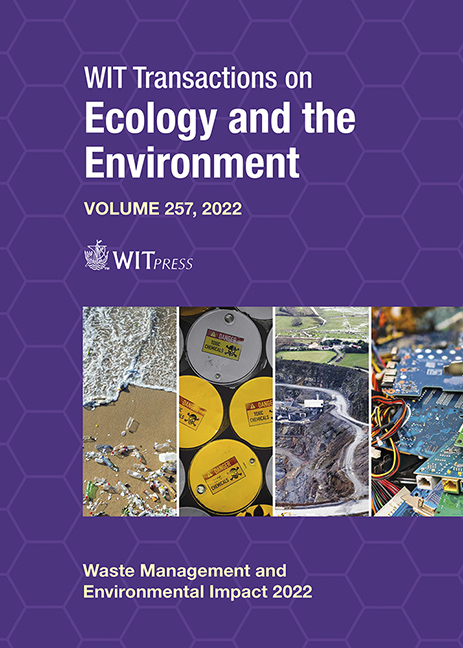MACROINVERTEBRATES AS BIOINDICATORS OF WATER QUALITY IN THE METROPOLITAN REGION OF PANAMA
Price
Free (open access)
Transaction
Volume
257
Pages
12
Page Range
39 - 50
Published
2022
Paper DOI
10.2495/WMEI220041
Copyright
Author(s)
MADELINE CONCEPCIÓN, LIZ CANO, QUIRIATJARYN ORTEGA, ANDRES FRAIZ, ADRIAN RAMOS-MERCHANTE, ARTURO DOMINICI-AROSEMENA, EDGAR ARAÚZ, EDGARDO MUÑOZ, ARAMIS AVERZA
Abstract
This research is part of the work on the environmental impact of multi-stressors on the aquatic ecosystems of the metropolitan area of Panama City, which is aligned to the strategy of Resilience of Panama City, about a plan of actions within the economic, social, and environmental field. This paper presents a study of bioindicators of water quality using the macroinvertebrate communities present along (high, middle, and low points) of three different basins of the Pacora, Matasnillo, and Juan Díaz rivers at different times of the year (dry, rainy, and transitional seasons). Biological monitoring carried out in sections of 100 m were taken and samples collected using a D-Net network of 500 μm, the organisms were examined in the laboratory with the support of specialists from the Gorgas Memorial Institute for Health Studies. Based on the compilation and review of the material, we were able to list a total of 2,704 individual freshwater macroinvertebrates. According to the BMWP/PAN results, it is observed that the highest levels of pollution are found in the lower parts of each tributary. The Matasnillo River has the highest pollution range with a value of <19, while the Pacora River has the lowest range. The results are important information about the functional groups of aquatic insects and provide relevant data for monitoring and conserving rivers, streams, and others. Due to the difficulties in educating the population on how to care for our aquatic ecosystems, it is important to diagnose water quality using the presence or absence of aquatic invertebrates.
Keywords
multi-stressors, resilience, bioindicators, macroinvertebrates, basin, BMW-PAN, freshwater, water quality, pollution




